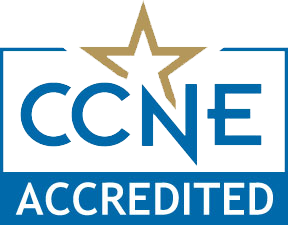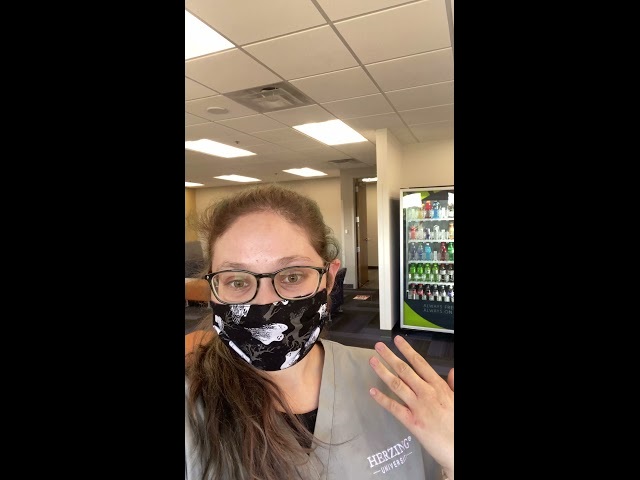Go from LPN to RN online with Herzing University
| Accreditation | CCNE accredited BSN Bridge,✝ Accredited by the Higher Learning Commission |
|---|---|
| Finish faster | Designed for practicing LPN/LVNs; take advantage of your current licensure and experience and earn a nursing degree quicker than a traditional pre-licensure program |
| Format | Core didactic (lecture) courses are delivered 100% online, including real-time and on-demand courses you can take in evenings/nights, weekends, or whenever it's convenient for you |
| Hands-on prep | Hands-on learning includes on-site clinicals and intensives requiring attendance at a designated Herzing or partner site |
| Eligibility | Available for enrollment in select states1 |
| QuickPaths | Transfer credit, stackable credentials, and adaptive learning technology build a faster pathway to a higher education with Herzing University |
Learn More Today!
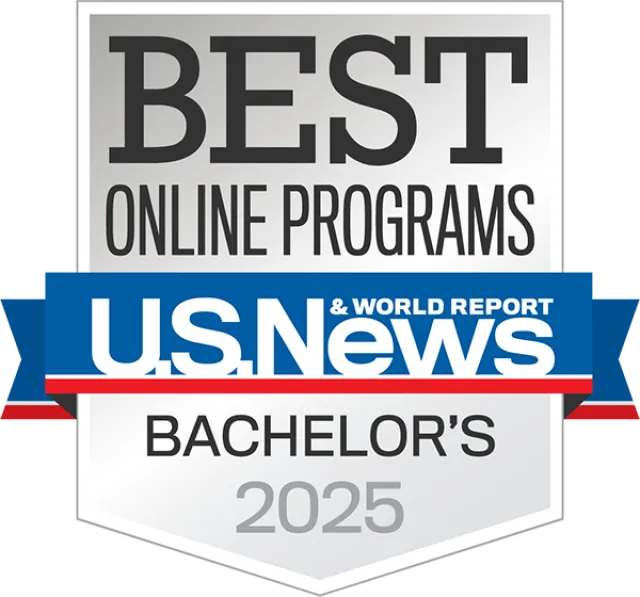
Ranked by U.S. News & World Report as one of the best online bachelor's programs in 2025
ASN/BSN Bridge for Practical Nurses - Online!
Educational pathways from LPN to RN with Herzing University include both ASN and BSN programs preparing you for a career as a registered nurse. The online degree programs provides students with fundamental knowledge and skills in the nursing process, medical-surgical nursing, managing care, evidence-based practice, and much more.
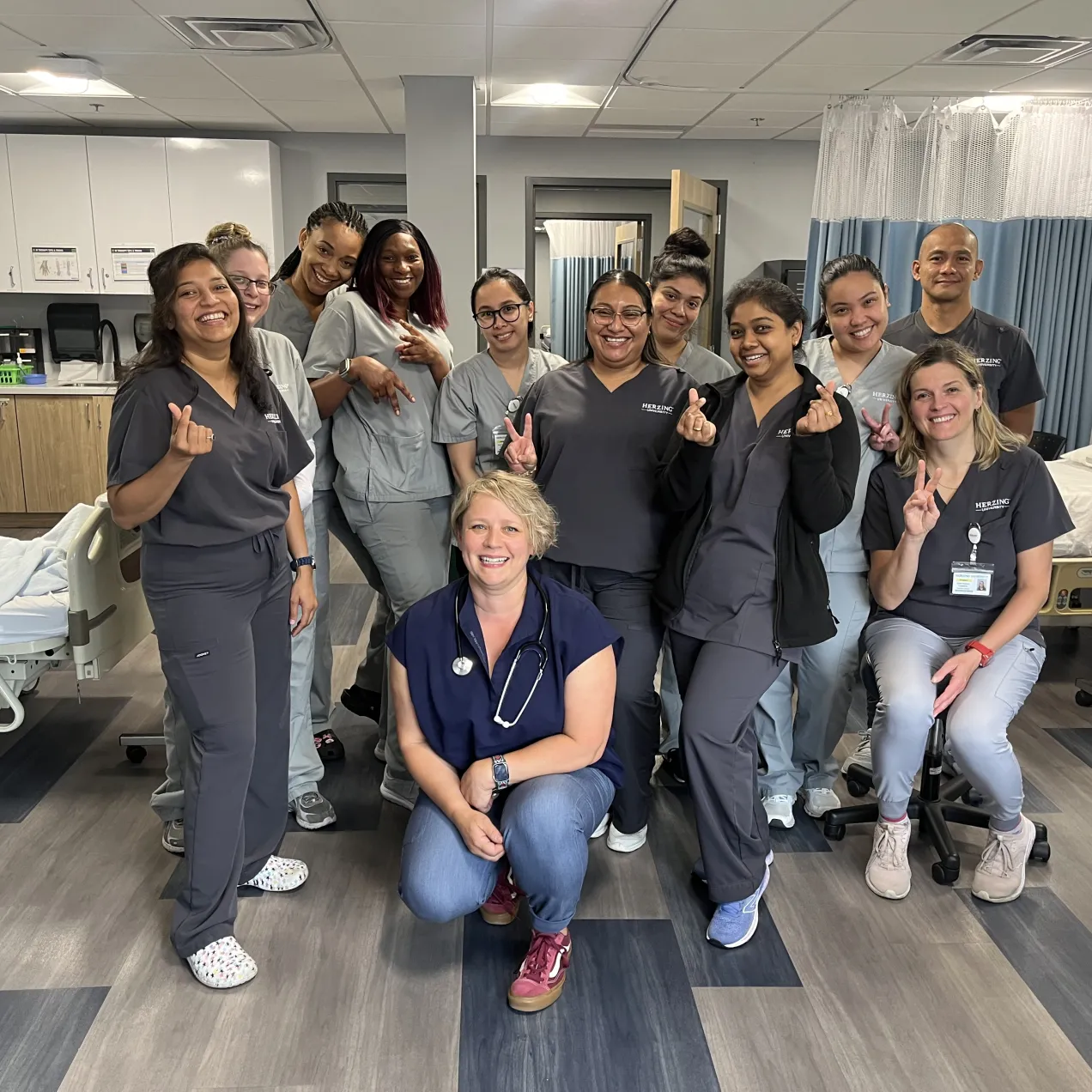
Career-focused curriculum
Discover the crucial knowledge and skills required to succeed in your work and build a foundation for continued career growth.
Flexible schedule
We work hard to help you maintain school-life balance, striving to be as flexible as possible for busy non-traditional students.
Virtual services
Access to extensive virtual services, including academic advising, tutoring, support services, technical support and library services.
Lifelong support
We support your ongoing career advancement by providing comprehensive, personalized student services with lifelong career coaching.
Rolling admissions
No application deadlines to worry about. Apply when you’re ready and prepare to get started soon.
Course & Curriculum Details
| Program | Months i | Credit |
|---|---|---|
| Associate of Science in Nursing (ASN) - Bridge Option | 20 | 72 |
| Bachelor of Science in Nursing (BSN) - Bridge Option | 28 | 120 |
i. Average number of months for students to complete program
ASN Bridge Option curriculum
Required Courses in Nursing
33.00 semester credit hours are required.
Required Courses in General Education
Students enrolled in this associate degree program must complete a minimum of 26.00 semester credit hours. 6.00 Semester Credit Hours in Communications EN 104 English Composition I EN 111 Information Literacy 3.00 Semester Credit Hours in Humanities HU 140 Cultural Diversity 3.00 Semester Credit Hours in Mathematics MA 109 College Algebra 3.00 Semester Credit Hours in Behavioral Science PS 105 Developmental Psychology 11.00 Semester Credit Hours in Science SC 154 Anatomy and Physiology I for Nurses SC 166 Microbiology SC 254 Anatomy and Physiology II for Nurses Courses transferred from other accredited colleges may also be used to meet these requirements. Science courses being transferred from other accredited colleges must meet the nursing program science requirements.
Special General Education Grading Requirements
The following general education courses must be completed with a grade of "C" (70%) or better for a student to continue in the nursing program. MA 109 College Algebra PS 105 Developmental Psychology SC 166 Microbiology The following science courses must be completed with a grade of "B" (80%) or better. Only two attempts are permitted for each course and a student who fails to successfully complete in the maximum attempts is subject to dismissal from the nursing program. SC 154 Anatomy and Physiology I for Nurses SC 254 Anatomy and Physiology II for Nurses A student who is dropped from the nursing program for failing to achieve the minimum grade specified in the courses listed above, but who otherwise meets the academic standards of the University may transfer to another Herzing degree program and/or may appeal to reapply to the ASN nursing program in a future semester. Resuming students should refer to the section on re-entering for additional requirements.
Distribution of Contact Hours by Course
Distribution of Contact Hours by Course Course or Category Lecture Lab Clinical Total Contact Hours Credits Block Credit Transfer 195.00 0.00 0.00 195.00 13.00 NSG 124 45.00 0.00 0.00 45.00 3.00 NSG 126 15.00 30.00 45.00 90.00 3.00 NSG 221 45.00 0.00 45.00 90.00 4.00 NSG 222 60.00 0.00 90.00 150.00 6.00 NSG 223 60.00 0.00 90.00 150.00 6.00 NSG 233 45.00 30.00 45.00 120.00 5.00 NSG 291 15.00 0.00 90.00 105.00 3.00 NSG 298 45.00 0.00 0.00 45.00 3.00 SC 154 45.00 30.00 0.00 75.00 4.00 SC 254 45.00 30.00 0.00 75.00 4.00 SC 166 30.00 30.00 0.00 60.00 3.00 Communication 90.00 0.00 0.00 90.00 6.00 Humanities 45.00 0.00 0.00 45.00 3.00 Mathematics 45.00 0.00 0.00 45.00 3.00 Social or Behavioral Science 45.00 0.00 0.00 45.00 3.00 Totals 870.00 150.00 405.00 1425.00 72.00
BSN Bridge Option curriculum
Required Courses in Nursing
All courses, 66.00 semester credit hours, are required.
Dual Credit Option for Taking Graduate Level Courses
Dual Credit Options are not available for New Orleans students. See Academic Information for full requirements under title Earning Graduate Credits as an Undergraduate Student. Undergraduate Course Graduate Course Equivalency NSG 321 Advanced Leadership and Management NU 730 Systems-Based Practice (Transferrable to MSN & DNP Programs) NSG 324 Evidence Based Practice in Nursing NU 602 Epidemiology, Research, and Theory (Transferrable to BSN to DNP Program Only) NSG 421 Nursing Informatics NU 725 Technology and Nursing Informatics in Advanced Practice (Transferrable to MSN & DNP Programs) NSG 423 Policy, Trends, & Ethics in Nursing HA 610 Health Policy and Management (Transferrable to MSN Program, except for MSNWHNP)
Required Courses in General Education
Students enrolled in the BSN program must complete a minimum of 52.00 semester credit hours in general education distributed among the following disciplines. A minimum of 9.00 semester credit hours must be upper level (300- to 400-level courses). The Herzing University General Education offerings are listed below. Refer to the General Education section of the catalog for additional information on general education requirement. 12.00 Semester Credit Hours in Communications EN 104 English Composition I EN 111 Information Literacy EN 116 Speech EN 304 English Composition II 16.00 Semester Credit Hours in Science SC 154 Anatomy and Physiology I for Nurses SC 254 Anatomy and Physiology II for Nurses SC 150 Principles of Nutrition SC 166 Microbiology SC 186 Chemistry 9.00 Semester Credit Hours in Humanities HU 140 Cultural Diversity HU 240 Introduction to Humanities HU 340 Humanities and Contemporary Popular Culture 6.00 Semester Credit Hours in Mathematics MA 109 College Algebra MA 320 Statistics 9.00 Semester Credit Hours in Social or Behavioral Science PS 101 Psychology PS 105 Developmental Psychology SS 350 Social Issues and Technology Note: Transfer students may transfer courses that are within 1.00 semester credit hour of the courses listed above to meet these discipline requirements. Any resulting deficiency in the total of 52.00 semester credit hours required in general education may be made up with general education electives from any of the listed disciplines. Science courses being transferred in from other institutions must meet the nursing program science requirements.
Special General Education Grading Requirements for Nursing Support Courses
The following science courses must be completed with a grade of "B" (80%) or better. Only two attempts are permitted for each course and a student who fails to successfully complete in the maximum attempts is subject to dismissal from the nursing program. SC 154 Anatomy and Physiology I for Nurses Semester Credit Hours: 4.00 SC 254 Anatomy and Physiology II for Nurses Semester Credit Hours: 4.00 The following general education courses must be completed with a grade of "C" (70%) or better for a student to continue in the nursing program. *BSN students enrolled in the Atlanta Campus require a "B" (80%) or better in SC 166 Microbiology and SC 186 Chemistry. PS 105 Developmental Psychology Semester Credit Hours: 3.00 SC 150 Principles of Nutrition Semester Credit Hours: 2.00 SC 166 Microbiology Semester Credit Hours: 3.00 SC 186 Chemistry Semester Credit Hours: 3.00 MA 109 College Algebra Semester Credit Hours: 3.00 MA 320 Statistics Semester Credit Hours: 3.00 A student who is dropped from the nursing program for failing to achieve the minimum grade specified in the courses listed above, but who otherwise meets the academic standards of the University may transfer to another Herzing degree program and/or may appeal to reapply to the BSN nursing program in a future semester.
Personal and Professional Development Courses
All courses, 2.00 semester credit hours, are required.
Resuming students should refer to the section on re-entering for additional requirements.
Distribution of Contact Hours by Course
Distribution of Contact Hours by Course Course or Category Lecture Lab Clinical Total Contact Hours Credits NSG 120 45.00 0.00 0.00 45.00 3.00 NSG 121 30.00 30.00 0.00 60.00 3.00 NSG 122 45.00 30.00 45.00 120.00 5.00 NSG 123 45.00 0.00 135.00 180.00 6.00 NSG 124 45.00 0.00 0.00 45.00 3.00 NSG 221 45.00 0.00 45.00 90.00 4.00 NSG 222 60.00 0.00 90.00 150.00 6.00 NSG 223 60.00 0.00 90.00 150.00 6.00 NSG 321 45.00 0.00 0.00 45.00 3.00 NSG 323 60.00 0.00 45.00 105.00 5.00 NSG 324 45.00 0.00 0.00 45.00 3.00 NSG 421 45.00 0.00 0.00 45.00 3.00 NSG 233 45.00 30.00 45.00 120.00 5.00 NSG 423 45.00 0.00 0.00 45.00 3.00 NSG 425 30.00 0.00 135.00 165.00 5.00 NSG 426 45.00 0.00 0.00 45.00 3.00 EN 101 45.00 0.00 0.00 45.00 3.00 EN 111 45.00 0.00 0.00 45.00 3.00 EN 116 45.00 0.00 0.00 45.00 3.00 EN 304 45.00 0.00 0.00 45.00 3.00 SC 150 30.00 0.00 0.00 30.00 2.00 SC 166 30.00 30.00 0.00 60.00 3.00 SC 186 30.00 30.00 0.00 60.00 3.00 SC 154 45.00 30.00 0.00 75.00 4.00 SC 254 45.00 30.00 0.00 75.00 4.00 MA 109 45.00 0.00 0.00 45.00 3.00 MA 320 45.00 0.00 0.00 45.00 3.00 HU 140 45.00 0.00 0.00 45.00 3.00 HU 240 45.00 0.00 0.00 45.00 3.00 HU 340 45.00 0.00 0.00 45.00 3.00 PS 101 45.00 0.00 0.00 45.00 3.00 PS 105 45.00 0.00 0.00 45.00 3.00 SS 350 45.00 0.00 0.00 45.00 3.00 PD 121 15.00 0.00 0.00 15.00 1.00 PD 202 15.00 0.00 0.00 15.00 1.00 Totals 1485.00 210.00 630.00 2325.00 120.00
Online & In person
What's Online, and What's In-person?
Online
All didactic (lecture) courses are asynchronous, meaning you can complete them online on your own schedule.
You have flexibility throughout the program to complete general education or core nursing courses at your own pace.
Practicum instructor and peer collaboration requirements will be done via distance learning and offer flexible scheduling for the synchronous, or real-time, course elements.
In-person
Practical, hands-on training remains crucial and required preparation for earning a nursing degree and becoming a registered nurse. Our curriculum includes:
- Clinicals: There are eight clinical courses, seven of which include precepted clinical hours. You’ll complete the precepted hours in or near your geographic area. We have a dedicated team to help you find clinical placement.
- Intensives: You’ll be required to attend two or three 2-4 day intensives at a designated Herzing or partner site depending on the degree pathway you choose. These sessions serve as crucial skill and knowledge checkpoints to ensure you’re on the right track. Intensives will take place at our Nashville campus—or a facility associated with a unique clinical partnership.
Tuition & Cost
Tuition & Cost
The cost of tuition for the online LPN to BSN bridge option is $755 per credit, and the online LPN to ASN bridge option is $925 per credit.
You can potentially earn even greater savings by transferring credit from prior college coursework, applying for financial aid, or potential partnership opportunities through your employer.
Our goal is your career advancement. That's why we are always working to improve our curriculum and processes to make our program as affordable as possible while preparing you best for success in your work.
Scholarships & Financial Aid
You may be eligible for multiple scholarships and grants—including our Nurses Circle of Achievement scholarship, which offers up to 10% tuition reduction.
Military/Veteran Discounts
Veterans, Active Duty U.S. Servicemembers, and spouses may qualify for a 10-20% tuition discount.
Requirements
Admissions requirements
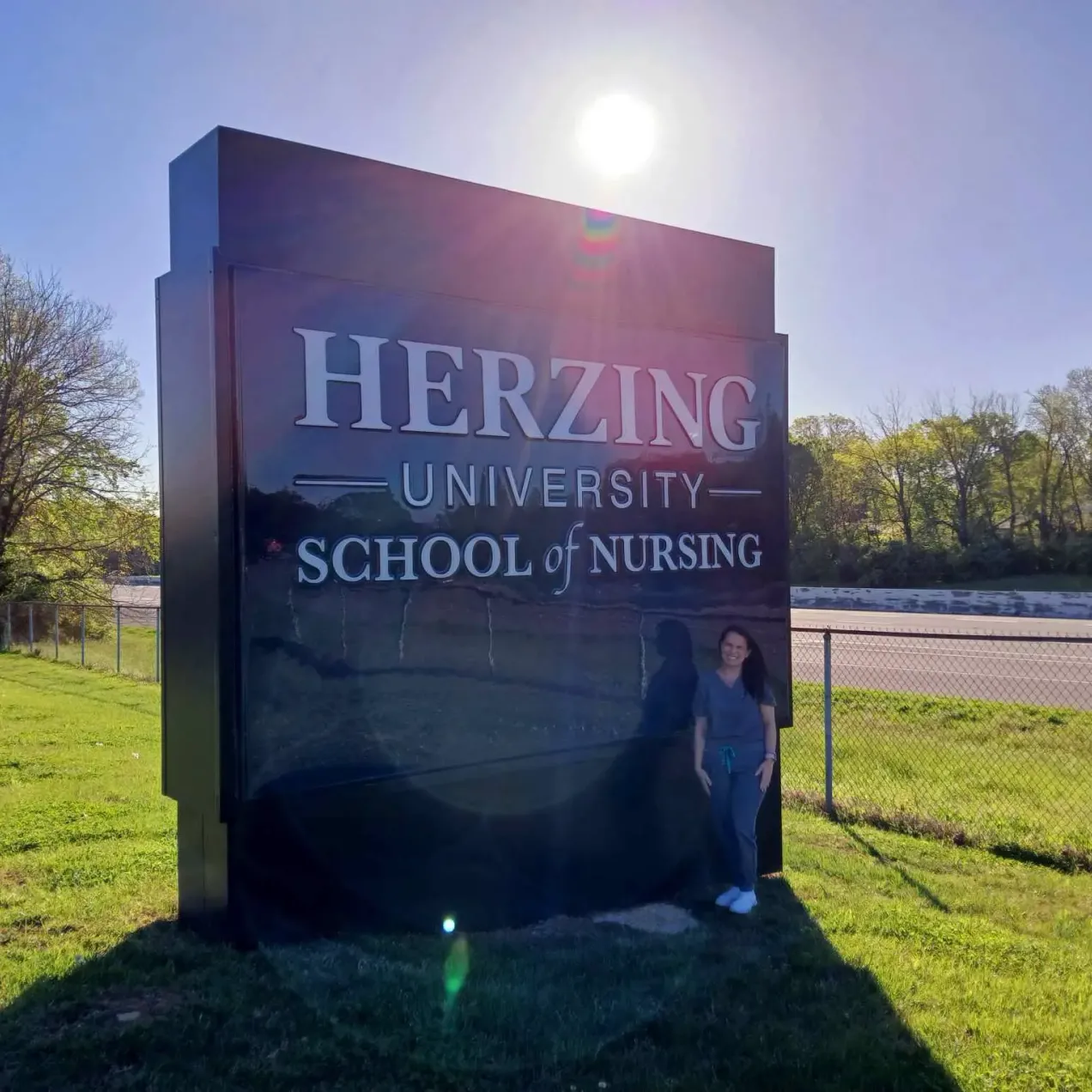
Admission Requirements
ASN Bridge admissions requirements
Requirements for enrollment in the Herzing University online Associate of Science in Nursing (ASN) bridge option include:
- A high school or previous college grade point average (GPA) of 2.5 or higher.
- Achieve at least a composite score of 66 on the most current version of the Test of Essential Academic Skills (TEAS); TEAS score must be from within three years of anticipated date of matriculation.
- Students who have failed one or more nursing courses in another nursing program are not eligible to enroll in the online ASN.
Eligible states for enrollment:
BSN Bridge admissions Requirements
To qualify for the BSN bridge option, you must be a licensed practical nurse (LPN), paramedic, military medic, respiratory therapist, or cardiovascular technologist.
Additional requirements include both a GPA requirement and minimum benchmark scores on the Test of Essential Academic Skills (TEAS):
| Prior education | High school diploma or equivalent, PN diploma |
| Minimum GPAi | 2.5 |
|---|---|
| Minimum TEAS score | 66 |
| i. Students with 24 or more transferable collegiate credits will be assessed on their collegiate cumulative GPA. Otherwise, the high school GPA will be used. | |
Eligible states for enrollment:
iOrlando and Tampa regions only.
I don’t meet the enrollment requirements. Do I have any other options?
Yes! You still have multiple educational pathways to becoming an RN even if you don’t qualify for the Online BSN Bridge option today:
Accreditation & Recognition
Our accredited & recognized online school
We strive to earn rank as one of the top private, nonprofit universities in the United States. Just as you work every day to become the best version of yourself, so do we as a university.
We are proud to have attained institutional and programmatic accreditation in addition to industry recognition for our accomplishments helping students earn a college education and find career success.
✝The baccalaureate degree program in nursing at Herzing University Orlando is accredited by the Commission on Collegiate Nursing Education (http://www.ccneaccreditation.org). Herzing University is approved to offer programs in an online learning modality through association with the main campus in Madison, Wisconsin.
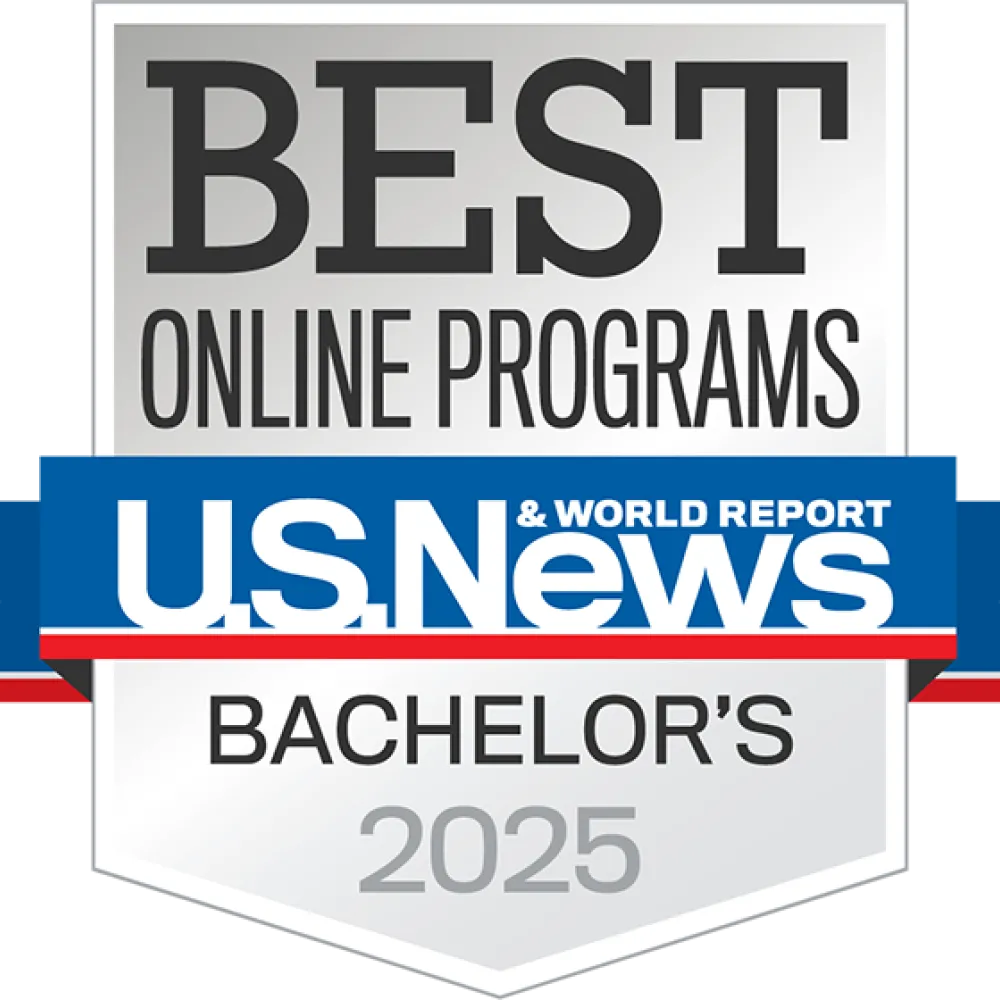
Ranked by U.S. News & World Report among the best online bachelor’s degree programs in 2025.
Herzing University is institutionally accredited by the Higher Learning Commission (hlcommission.org), a regional accreditation agency recognized by the U.S. Department of Education.
Waived Enrollment Fee
Discover the educational pathway designed to maximize your career potential. Reach for greater heights with Herzing University.
Going from LPN to RN
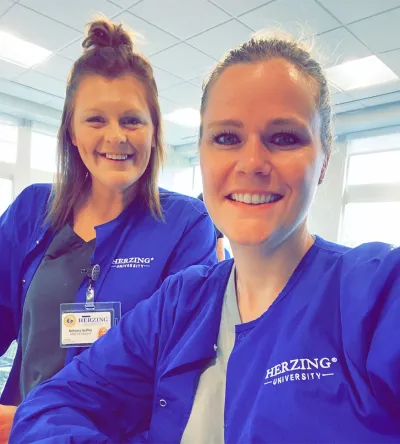
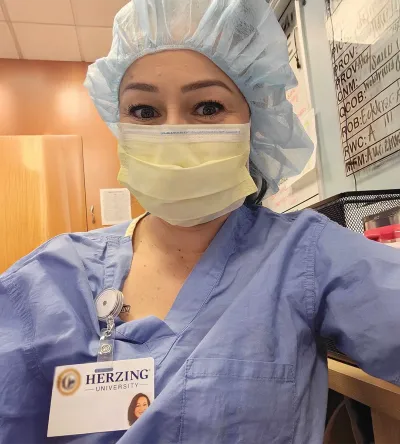

As a registered nurse you’ll be the backbone of day-to-day operations in many healthcare settings. RNs help to:
- Develop and direct treatment plans
- Counsel patients and family members
- Ensure patient comfort
- Serve as the key connection between doctors and patients
Registered Nurse ranks as the #18 Best Healthcare Job for 2025 according to U.S. News & World Report.
Approved roles and responsibilities for both LPNs/LVNs and RNs vary by state. But generally speaking, RNs enjoy a significantly broader scope of practice than LPNs. Earn an undergraduate nursing degree and you can discover new levels of career mobility.
Transitioning from LPN to RN represents an expansion of your scope of practice, higher salary potential, and greater career prospects in the future.
Job outlook and pay potential
According to the Bureau of Labor Statistics, employment of registered nurse is expected to increase 6% from 2022-2032.*
Registered nurses earn an average salary of $94,480 per year ($45.42 per hour). That would represent a significant raise for the average LPN/LVN in the US ($60,790 per year, $29.23 per hour).
You can take a big step forward in your nursing career by becoming an RN.
Waived Enrollment Fee
Discover the educational pathway designed to maximize your career potential. Reach for greater heights with Herzing University.
Faq
Frequently Asked Questions
Didn't find the answer to your question? Send us an inquiry and we will be happy to answer all your questions!
There are many different nursing specialties to choose from. Depending on your personality, educational background and preferred working environment you can follow your own personalized path in the nursing profession.
Here are a few popular nursing specialties you may consider:
- Aesthetic or Cosmetic nurse
- Assisted living nurse
- Cardiac/cardiovascular nurse
- Emergency room nurse
- Flight nurse
- Home health nurse
- Labor and Delivery nurse (L&D)
- Med/surgical nurse
- Neonatal/NICU nurse
- Nurse Anesthetist
- Oncology nurse
- Pediatric nurse
- Public health nurse
- School nurse
- Travel nurse
You can take our nursing personality quiz to get a better idea of what you might prefer in your nursing career.
The advantages of a BSN can include:
- Increased autonomy in decision making while on the job
- Open doors to more specialties in the nursing field
- Become a more attractive candidate for hospitals seeking Magnet Recognition
- Build a foundation to grow into education or leadership pathways
- Positions you better for nursing jobs with higher pay
- Qualify to enroll in an MSN program
- Become more familiar and educated with evidence-based practice opportunities
- Increase knowledge and understanding of RN specialties and skills
- Transition from “technical” to “professional” RN
- Gain a deeper knowledge of nursing theory and leadership theory
A 2022 study from the American Association of Colleges of Nursing (AACN) indicates employers have the level of education at top of mind in the hiring process. Based on responses from nursing schools, the survey revealed 69.8% of employers show a strong preference for BSN graduates.
The ultimate benefit is bettering yourself, becoming the best nurse you can be and following the career path of your choosing.
The cost varies based on several factors, including credits you’re able to transfer, campus location, and financial aid for which you are eligible.
You can use our Tuition Wizard to estimate tuition, discover scholarship and grant possibilities, and find out how much transfer credit can lower the cost.
According to the Bureau of Labor Statistics, the average salary for registered nurses is $94,480 per year ($45.42 per hour)*. Nurses with a bachelor’s degree tend to fall on the upper side of that average due to their advanced education and their qualification to help hospitals earn Magnet Recognition.
The BLS projects a 6% increase in need for registered nurses from 2022-2032.* RNs are in demand, and earning a BSN can help your resume stand out and give you a better chance of getting the job you really want.
It’s a question of:
- What your goals are
- How quickly you want to reach them
If your goal is to go from LPN to RN quickly, the best choice may be an associate’s degree program since you may be able to become an RN in less than 2 years.
If your goal is to become an RN and potentially advance further by working towards a master’s degree in nursing (MSN), your best option is a bachelor’s degree in nursing program.
Read about the most basic differences between ADN vs. BSN and discover what's best for you.
The length of the degree program roughly estimates a baseline for how long it would take for you to go from LPN to RN.
Earning a degree does not by itself make you eligible to practice. You’ll need to pass the NCLEX-RN and meet the Board of Nursing requirements in your state. These additional steps don’t take too much extra time after graduation. How long you have to wait after graduation to take the NCLEX depends on state requirements, but you can generally expect to take the exam within 1-2 months.
You can potentially get an education and become an RN faster on the associate degree path. With prior LPN education and experience, you can earn an ASN in as few as 16 months through our program.
The LPN to BSN pathway takes longer (28 months through our program), but there are many benefits to taking the extra time to earn a bachelor’s degree.
Regulation has been deliberated for many years. There is currently only one state which has taken concrete action to make BSNs effectively mandatory for nurses – New York. Their “BSN in 10” bill, passed in January 2017, requires registered nurses holding an associate degree to earn their BSN qualification within 10 years of their initial RN licensure.
Two primary competing factors cloud the issue:
- Hospitals are incentivized to hire more BSN-prepared nurses. Organizations seeking Magnet Recognition must require all nurse managers to hold a BSN.
- Nurses are in very high demand. The American Association of Colleges of Nursing (AACN) calls it a shortage in nursing. Raising minimum education requirements may decrease the pool of eligible employable RNs.
Because of the high demand for nurses, sweeping legislation making bachelor’s degrees mandatory across the board seems unlikely. However, make sure to keep an eye on what’s happening in your state!
While Registered Nurses (RN) and Licensed Practical Nurses (LPN) often work together in collaboration in hospitals and other healthcare facilities, their roles and responsibilities are very different. Learn more about the biggest differences between practical nurses (LPN/LVN) and registered nurses (RN).
Our nursing programs are designed to be challenging, but not impossible. Your career as a registered nurse will be demanding, and our goal is to help you succeed and become the best healthcare provider you can be. We won’t do you any favors by making things too easy.
Learn more about how hard nursing school really is from Herzing graduates who have been through it. You will have support from Herzing University faculty, staff and other students every step of the way. Never be afraid to ask for help when you need it!
The Student Experience at Herzing
Herzing accepted my previous classes in an LPN program, so I was able to finish my BSN degree in no time!
Ingrid Eleosida
Nursing Student | Kenosha CampusEverybody at Herzing is nice and friendly, and I became happier here.
Christine Paul Cardenas
Nursing Student | Kenosha CampusI had already been an LPN for eight years and knew that my BSN was the next step in my career.
Victor Kanyendo
Nursing Student | Kenosha CampusDisclosures
1. Eligible states for enrollment (online BSN): Alabama, Colorado, Florida (Orlando and Tampa regions only), Illinois, Indiana, Iowa, Kansas, Kentucky, Michigan, Missouri, Nebraska, North Carolina, Ohio, Oklahoma, South Carolina and South Dakota, Tennessee, Virginia, and Wisconsin.
Eligible states for enrollment (online ASN): Florida, Iowa, Idaho, Illinois, Kentucky, Michigan, Missouri, North Carolina, Nebraska, Ohio, South Carolina, South Dakota, and Wisconsin.
Accreditation Commission for Education in Nursing (ACEN), 3390 Peachtree Road NE, Suite 1400, Atlanta, GA 30326, (404) 975-5000; View the public information disclosed by the ACEN regarding this candidate program at https://www.acenursing.org/search-programs. Note: Upon granting of initial accreditation by the ACEN Board of Commissioners, the effective date of initial accreditation is the date on which the nursing program was approved by the ACEN as a candidate program that concluded in the Board of Commissions granting initial accreditation.
Recent Blog Posts
Waived Enrollment Fee
Discover the educational pathway designed to maximize your career potential. Reach for greater heights with Herzing University.

